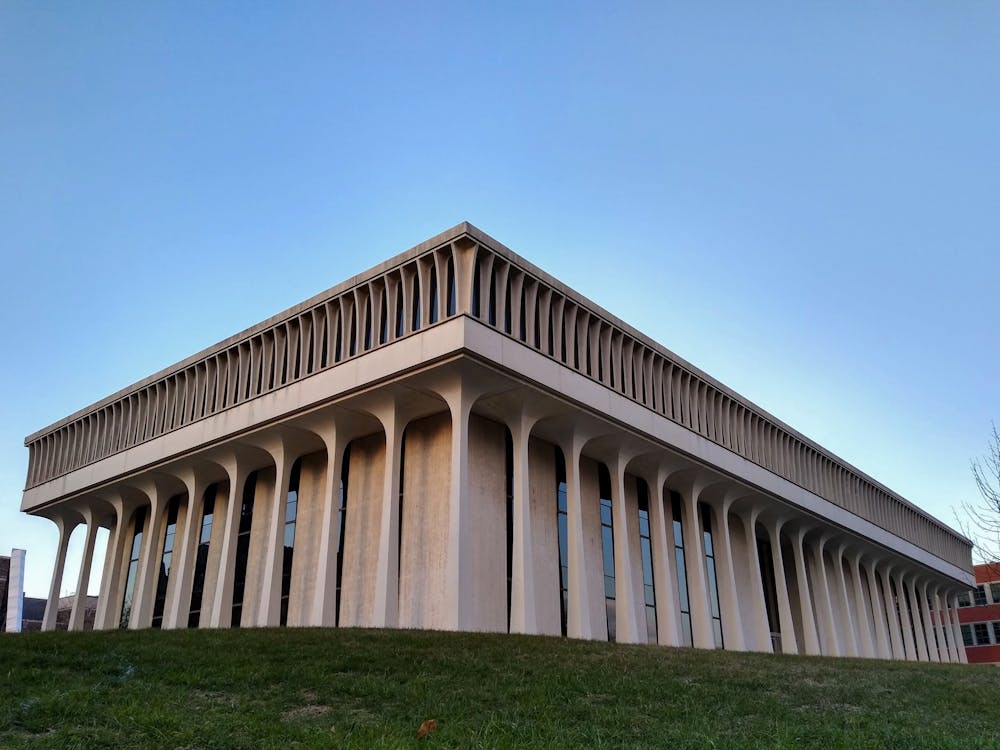Three officials from the Department of Justice Civil Rights Division spoke at the University on Tuesday, March 22 about their work investigating and combating system abuse in policing.
At the panel hosted by the School of Public and International Affairs (SPIA), the speakers discussed examples of their investigations and reform efforts, such as in the Baltimore, Md. and Ferguson, Mo. police departments, which have faced intense public scrutiny in recent years.
The SPIA panel was titled “Harassment, Discrimination, and Abuse of Power: Protecting Civil Rights from Police Misconduct” and came as part of Princeton’s Leadership Through Mentorship program. The speakers were recommended to SPIA by students in the department, according to Lauren Mosko, interim Public Affairs Manager.
The panelists were Cynthia Coe, Maureen Johnston, and Megan Marks. All three work in the Special Litigation Section, part of the Civil Rights Division of the United States Department of Justice (DOJ).
Coe specializes in “conducting pattern-or-practice investigations of law enforcement agencies and negotiating and enforcing agreements to resolve those investigations,” according to SPIA’s announcement of the event. A pattern-or-practice investigation into a police department seeks to “bring to light any persistent patterns of misconduct,” according to the DOJ’s website.
Johnston and Marks are trial attorneys who focus on enforcing 34 U.S.C. § 12601, which allows the DOJ to “review the practices of law enforcement agencies that may be violating people’s federal rights,” according to the DOJ webpage.
The speakers discussed how systemic failures in police agencies harm marginalized communities and how the federal government works to reform law enforcement agencies.
“We’d like you to walk away with an understanding of how the federal government works to protect people from harassment, discrimination, and abuse of power at the hands of the police,” Coe said during the panel.

“Zero tolerance” policing is a law enforcement strategy based on full enforcement and punishment of all crimes, including minor infractions.
Coe cited three solutions the speakers found and implemented in response to zero tolerance policing strategy in Baltimore.
First, officers should have a standard to adhere to when dealing with a minor misdemeanor offense: if a citation is sufficient to address the harm, then the officer cannot arrest, and if a warning is sufficient, the officer cannot cite.
Secondly, in order to arrest someone for a “quality-of-life offense,” the officers had to get a supervisor’s approval to ensure probable cause existed.

Lastly, the Baltimore Police Department had to develop a system for tracking arrests for these quality-of-life offenses.
Johnston explained how the Civil Rights Division attempted to identify patterns across police departments in the United States to combat discriminatory policing.
“How do we know if discrimination is intentional or purposeful, or even unjustified with respect to a pattern of policing?” Johnston asked the audience.
She explained that one way to prove something is a pattern is to demonstrate that there is an explicit policy that directs officers at a high level. Johnston also argued that unofficial discrimination is far more common, and cited an example where 657 people were charged with minor offenses such as gaming or playing cards or dice, and all but five of those people were Black.
Johnston spoke about how the history and context of discrimination are relevant to knowing if the discrimination is purposeful, which they found to be the case in Baltimore. She argues that the city maps are evidence of the role that police can play in enforcing strict boundaries between neighborhoods with a zero-tolerance policy and those that receive fairer treatment.
“Because these discriminatory patterns remain in Baltimore today, they have essentially created a city map that is conducive to discriminatory policing,” Johnston said.
Marks spoke about the abuse of power in police and court systems. She focused on an investigation the speakers conducted of the Ferguson Missouri Police Department, a department that was largely focused on generating revenue through fines and fees by “embarking on a pattern of aggressive enforcement.”
The panelists concluded by discussing an agreement they came to with the city of Ferguson called the Comprehensive Amnesty Program, where the city had to dismiss cases from before 2014 unless there was “good cause,” dismiss charges where more than the original fine had been paid, and eliminate “failure to appear” charges. Marks noted the success of the program, saying that there have been “50,000 charges dismissed as a part of this program, and hundreds of thousands of dollars in fines and fees that have been waived.”
The panel was held at 4:30 p.m. on March 22 in the Arthur Lewis Auditorium.
Diya Kraybill is a Senior News Writer who often covers student groups and university affairs. She can be reached at diyak@princeton.edu.








